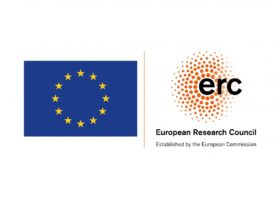There has been a proliferation of discussions regarding the social and ecological implications of contemporary urbanization. Notions such as ‘urban futures,’ ‘urban age’ are evoked to highlight the urban nature of ecological and societal challenges that we face.
What is largely missing in these timely debates, however, is a systematic and in-depth engagement with the political significance of the ongoing “urban revolution” – a term coined by urban sociologist Henri Lefebvre in 1970. Building on his work, a few scholars, such as Neil Brenner, and Christian Schmid have elaborated on the territorial, and socio-spatial aspects of planetary urbanization, namely the increasingly uneven, complex and polycentric nature of the urban at the scale of the whole planet. But the question of politics is still tangentially treated. Is there a particular kind of urban politics corresponding to our urban age? Do we need to rethink the way in which we govern our cities, the common resources that cities offer? Is international investment in real estate beneficial for cities?
To answer these questions we first need to develop an understanding of the increasingly dominant urban-based accumulation practices. There are indications that speculations on land, and real estate are increasingly global. Multinational real estate companies and investors that operate at the global scale have important consequences for cities.
URBAN-REV POLITICS approaches global urbanisation and its contestations from the perspective of the production and consumption of the built environment. Using a political economy approach it seeks to understand wealth generation strategies based on the production and consumption of urban space and specific urban transformations that they underpin, as well as how these are negotiated and challenged at the local and global scales.
The project is organised around three interrelated themes corresponding to three sub-projects (work packages):
The first is the uneven globalisation of real estate markets. Here we trace the interactions between various influential public and private actors (investors, asset managers, brokers, real estate developers, politicians, decision-makers etc.) to understand how their decisions and actions have impacts in specific sites.
The second is the exploitation of urban space through rent extraction. Here in relation to the first subproject we examine how a profit-driven approach informed by various risk-return calculations, and negotiated with local authorities affect urban spaces.
The third is the ways in which these often highly speculative interventions in urban spaces are negotiated and contested at different scales. We examine both the formal sphere of politics as well as contestations by civil society groups.
Using a multi-sited ethnography approach the work is based on Istanbul, London, Paris, and São Paulo. These cities feature comparable processes of property-led (re)developments, and a variety of activist and advocacy networks that challenge these.
URBAN-REV POLITICS seeks to contribute to debates in the fields of urban planning, urban political economy, and economic geography. Many of the themes that we engage with, such as urban redevelopment, competition between cities, gentrification, urban social movements are foci of significant scholarship today; other discussed themes, such as speculative urbanism, urban land rent, finance-real estate connection, and the urban commons have recently begun to attract (in some cases renewed) attention. However these discussions tend to occur in a rather compartmentalised fashion. For instance, property-led urban redevelopment, and gentrification are rarely discussed in relation to the transnational sites and networks of negotiation between state, finance and real estate actors. Similarly the work on real estate studies doesn’t sufficiently engage with issues related to conflict and contestations. The overall objective of the project is to offer a transnational and comparative account that not only ties these threads together in a coherent manner, but also offers an empirically substantiated framework for understanding the political implications of global urbanisation.
Key words
Urban land rent, globalization of real estate markets, urban commons, urban social movements
Methods
Comparative analysis, transnational ethnography, commodity chain analysis, participant observation, interviews, discourse analysis
Researchers (past and current):
Ozan Karaman (PI)
Eliza Benites-Gambirazio
Martine Drozdz
Sinan Erensü
Antoine Guironnet
İlknur Kurşunlugil
James Christopher Mizes
Mathilde Moaty
Zhumin Xu
This project has received funding from the European Research Council (ERC) under the European Union’s Horizon 2020 research and innovation programme (Grant agreement No. 680313)
https://cordis.europa.eu/project/id/680313/fr






